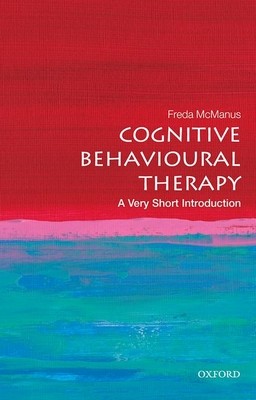
- We will send in 10–14 business days.
- Author: Freda McManus
- Publisher: Oxford University Press, USA
- Pages: 137
- ISBN-10: 0198755279
- ISBN-13: 9780198755272
- Format: 11.5 x 17.4 x 0.9 cm, softcover
- Language: English
- SAVE -10% with code: EXTRA
Cognitive Behavioural Therapy: A Very Short Introduction (e-book) (used book) | bookbook.eu
Reviews
Description
Very Short Introductions: Brilliant, Sharp, Inspiring Cognitive behaviour therapy (CBT) is a form of psychological therapy. It is not a unitary approach, but instead has evolved through a range of approaches that share a common underpinning model of cognition (thought) and behaviour being important in understanding and alleviating psychological distress. While the earliest approaches focused on modifying observable behaviour, later versions emphasized cognitive processes. Most recently, the third wave approaches in CBT have moved the focus away from the content of an individual's thoughts to their relationship with their thoughts, and the processes underlying thinking. This Very Short Introduction gives an overview of what CBT is, where it came from, what it does, and when it can be used. It explores how one of the driving forces behind CBT's success and continued adaptation has been its basis in empiricism, and analyses how it must continue to evolve to meet future challenges. Looking to the future, Freda McManus also discusses how the scale of mental health problems and relative costs of traditional therapy formats have prompted investigations into alternative formats of CBT that have the potential to reach broader audiences, globally. She also considers the challenges of scale in training the workforce required to roll out such interventions, as well as those of determining the best ways of monitoring their competence and effectiveness. ABOUT THE SERIES: The Very Short Introductions series from Oxford University Press contains hundreds of titles in almost every subject area. These pocket-sized books are the perfect way to get ahead in a new subject quickly. Our expert authors combine facts, analysis, perspective, new ideas, and enthusiasm to make interesting and challenging topics highly readable.- Author: Freda McManus
- Publisher: Oxford University Press, USA
- Pages: 137
- ISBN-10: 0198755279
- ISBN-13: 9780198755272
- Format: 11.5 x 17.4 x 0.9 cm, softcover
- Language: English English


Reviews